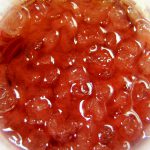When you take a bite out of your favourite chocolate, do you ever wonder who we have to thank for such a delicious sweet treat? Chocolate has a long and interesting history. The most interesting point of all being the fact that it was initially enjoyed as a beverage!
In Mesoamerica, the chocolate beverages were fermented as early as 1900 BC. This drink was often served with spices but no sugar or other sweetening ingredients were added. It was served as a frothy, bitter drink and the natives believed that it had an aphrodisiac effect. This kind of drink is still made and commonly known as “Chilate”.
After chocolate was introduced to Europe, in the 16th century, sugar was added and this drink became increasingly popular. Like most things, it was first available to those considered upper class and, later, the common people got to enjoy this delightful drink.
We have Christopher Columbus to thank for the introduction of chocolate to Europe. After his fourth visit to the American continent, his crew seized a canoe filled with various goods including cacao beans. Columbus’ son had noticed just how much the locals valued these beans which is why they were taken back to Spain. However, only once chocolate was introduced to Spanish court, did chocolate gain popularity. Sugar and honey was then added to the chocolate to counteract the bitter taste.
Following this, in the early 1800s, alkaline salts were added to chocolate to reduce that strong bitter flavour. Later, a press was developed to remove the cacao butter from the chocolate drink. This was an essential part in the process of creating the solid chocolate we know and love today. Approaching the turn of the century, milk chocolate was invented using powdered milk and, around this timethe conching machine was also invented which is also essential for producing good quality chocolate.
During the late 19th century and early 20th century, well-known chocolate manufacturers started producing boxed chocolates. Names like Lindt, Cadbury, and Nestle are still known and loved around the world today.


Be the first to post a comment.